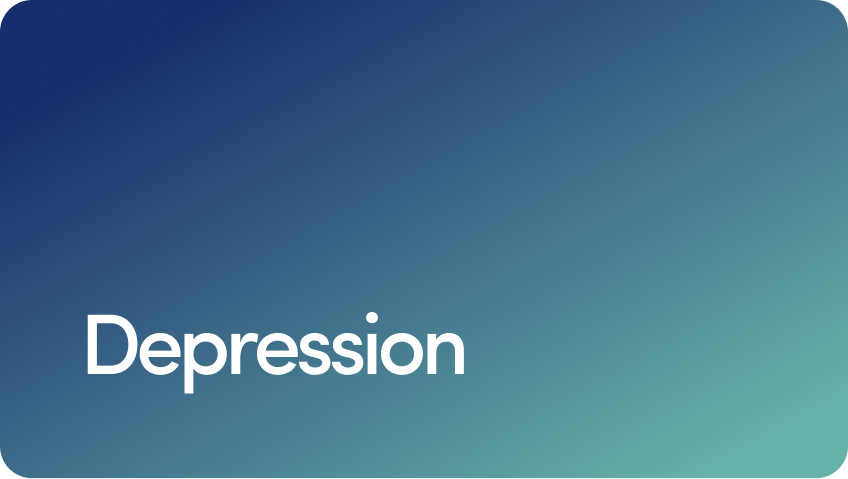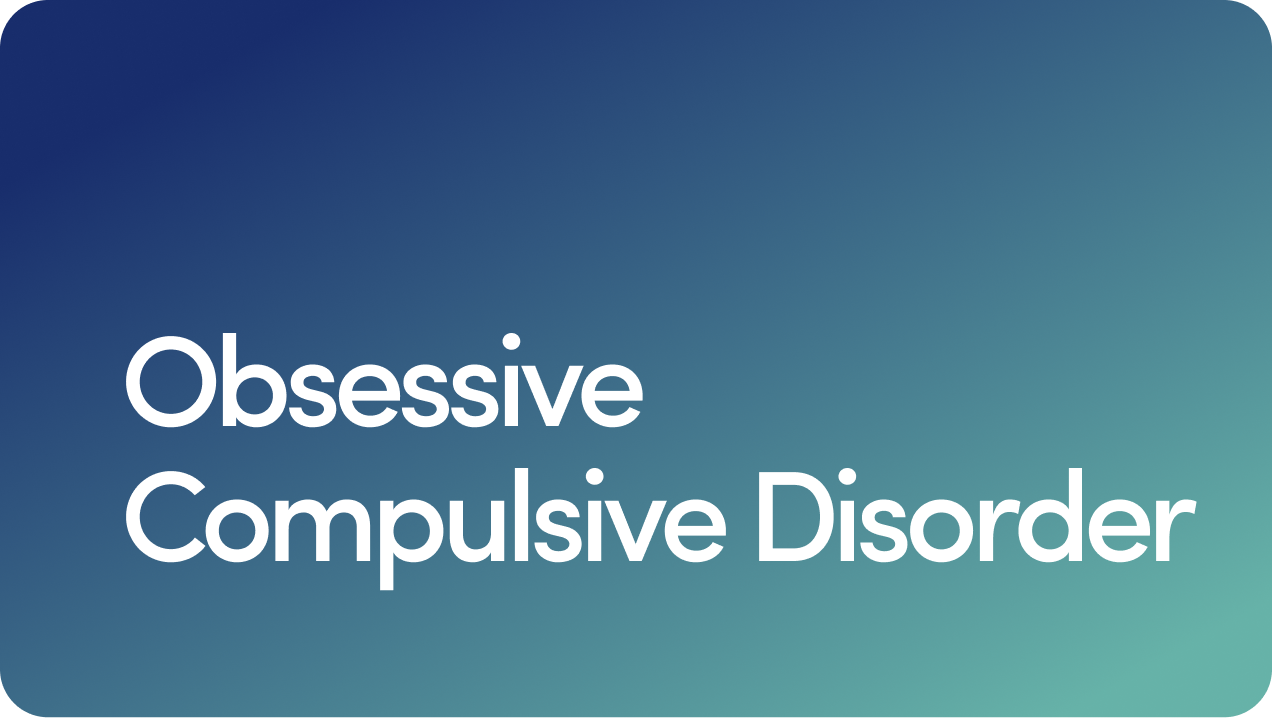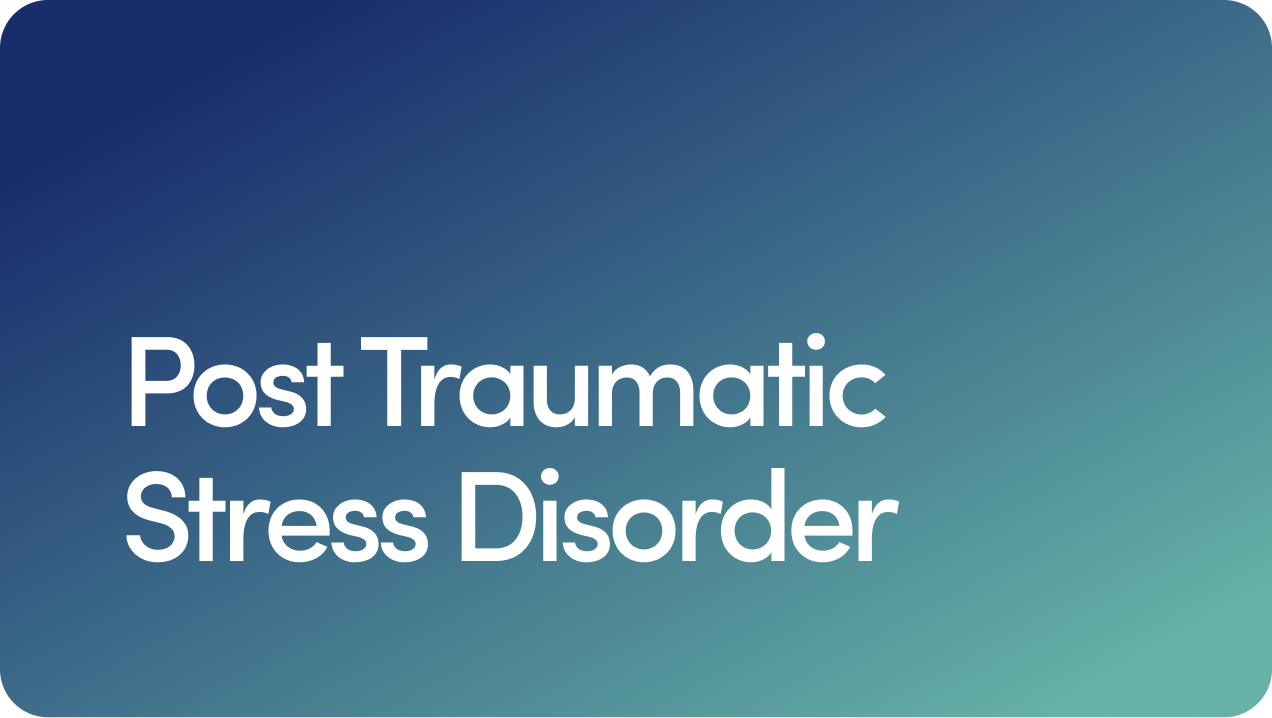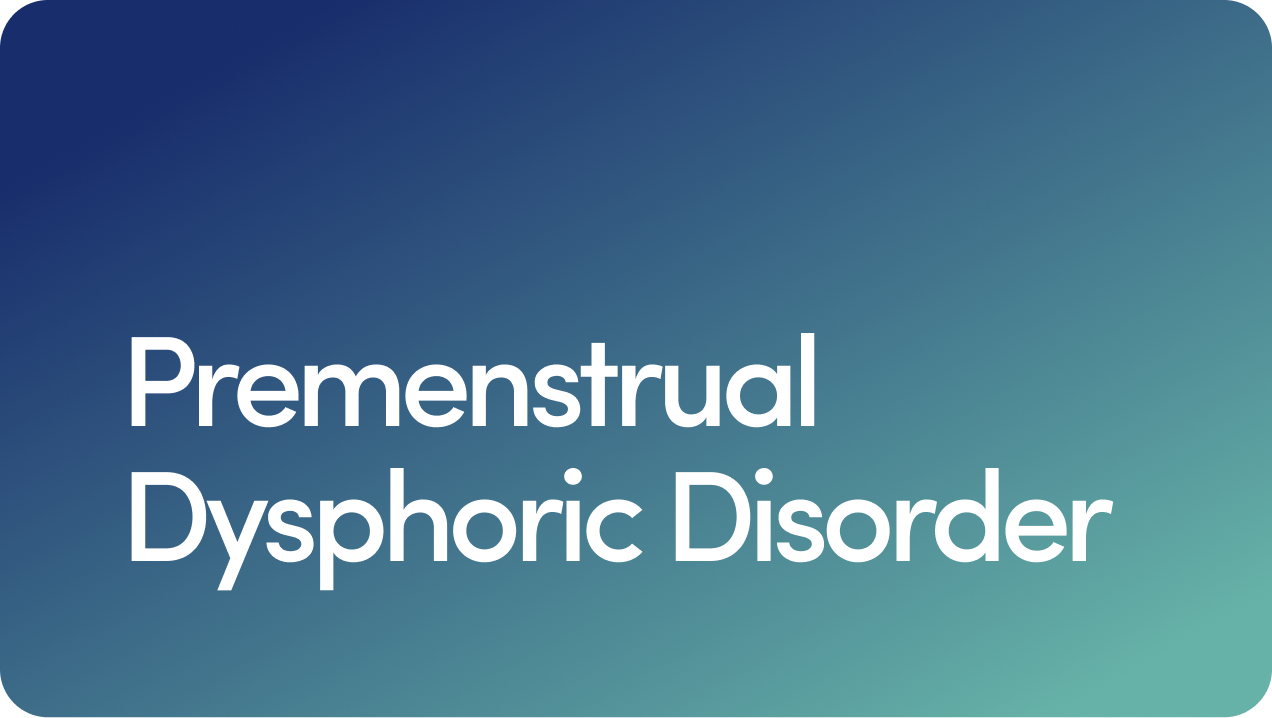Content
Free Mental Health Assessment
Weight Loss and Depression: What's the Connection?

Picture this: You meet up with an old friend you haven’t seen in some time. You notice they're more low energy than usual, and also that they look like they’ve dropped about three pants sizes.
Finally it comes out that they’ve experienced major depression, which you know can be serious. But it’s confusing: Can’t weight loss be a good thing? And can depression make you lose weight?
The answer is a resounding... maybe. One of the most common symptoms of depression is weight changes, which can show up as weight loss or weight gain. Either one may be healthy or unhealthy depending on the person and the extent to which their weight has changed.
We’re unpacking the relationship between depression and weight loss and exploring why depression can make you lose weight (or gain weight).
Content
Why Depression Can Cause Weight Loss
From major depressive disorder (MDD) to seasonal affective disorder (SAD), there are many kinds of depression.
Some people might experience depression temporarily — like if they’re going through a rough breakup or the loss of a job — while others may have chronic depression that becomes a daily struggle.
Though it looks different to everyone, depression is typically diagnosed after you’ve had persistent symptoms for at least two weeks.
Emotionally, depression can take a major toll, making you feel sad, irritable, helpless, or fatigued, among other symptoms. It can also manifest physically, causing aches and pains, headaches, fluctuations in your appetite, and unintentional changes in weight.
Depression and weight gain are often connected. For example, a 2019 meta-analysis showed a relationship between obesity and depression, finding that men and women suffering from obesity had a 55 percent higher risk of developing depression, while those suffering from depression had a 58 percent higher risk of developing obesity compared to controls.
There’s also a connection between weight loss and depression. The numbers you see reflected on the scale can be affected by:
Mood changes
Physical symptoms
Medication side effects
Changes in the brain
Let’s unpack each of these.
Mood Changes
Unusual changes in mood often indicate that something isn’t quite right with your health. When you’re depressed, you’re more prone to certain symptoms that can cause a shift in your eating habits, often unintentionally.
These symptoms can include:
Feeling emotionally drained. When you’re depressed, mustering up the energy to throw together a quick meal can feel like a Herculean effort. As a result, you might find yourself eating less simply because it feels like too much exertion.
Losing interest in things you once enjoyed. Maybe you once looked forward to sharing a large pizza with your partner every Friday night on the couch while binge-watching your favorite Bravo shows. But now, you feel completely disinterested — even when it comes to cravings for your go-to comfort foods, like cheesy carbohydrates.
Having trouble making decisions. Making even the seemingly smallest choices can feel overwhelming. Am I hungry? Not really, but I should probably eat something. What do I want for dinner? Hmm…cooking feels too hard. Should I order in? But nothing sounds appealing. As a result of this wishy-washy mindset, you wind up feeling defeated and don’t bother eating anything at all.
It’s important to take notice of changes in your mood, especially if they feel severe, irrational, come on without any identifiable trigger, and/or are affecting your behaviors around food and eating.
Other Physical Symptoms
Symptoms of depression can show up as changes in your physical health as well, such as a loss of appetite.
Not only can you feel emotionally drained when you’re depressed, but you might experience physical fatigue, too. Have you ever struggled to muster up the energy to put together a simple meal, or even when you have a plate in front of you, it feels impossible to take a bite?
In these instances, your body may be physically holding onto excess fatigue that overrides any desire to put food in your body. If you’re also experiencing digestive-related health issues like nausea and stomach pains, this can understandably make you want to eat less.
Psychomotor agitation, which involves fidgeting and pacing, is yet another physical factor that some people with depression experience. These movements, which sometimes feel involuntary, burn your energy levels and lower your appetite, promoting weight loss.
Medication Side Effects
Some medications are known for side effects like weight gain. You may be more likely to be on one of these medications if you’re experiencing depression. So you might be wondering, do all antidepressants cause weight changes?
While unintentional weight gain on antidepressants is a common concern, certain medications are more likely to promote weight loss as a side effect:
Bupropion (Wellbutrin®)
Bupropion, in particular, has been strongly linked to small amounts of weight loss as opposed to weight gain. Research shows that people who use bupropion to treat depression generally gain less weight, while others may lose weight.
A 2016 study found that non-smokers using bupropion lost an average of 7.1 more pounds than participants on fluoxetine, a popular selective serotonin reuptake inhibitor (SSRI), though cigarette smokers actually gained weight when using the drug.
Another review published in 2019 found that while the most popular medications used to treat depression caused weight gain, bupropion caused people to lose weight instead.
Changes in the Brain
Depression isn’t just “in your head” — it causes changes in the chemistry of your brain. Some experts believe there’s a correlation between these chemical imbalances and weight loss.
A 2016 study revealed that depression can influence appetite, indicating that depression has the ability to make you feel more or less motivated by food as a “reward.”
Just like depression can derail your motivation to work out or be social, it can have a similar effect when it comes to your desire to eat (or not eat).
While depression can certainly promote unintentional weight loss, it’s not the only potential factor.
Other contributors and risk factors can include:
Underlying illnesses
Significant mental stress
Certain medications
The point is that weight loss can occur for a number of reasons. We may all be affected by these factors differently.
Regardless, the best step you can take is to speak with a healthcare provider about your concerns. They can help get to the bottom of what’s actually going on in your body (and your mind) and come up with an appropriate treatment plan.
Can Weight Loss Cause Depression?
Does depression cause weight loss? It can for some people. But if we turn the tables, can weight loss cause depression?
That depends.
Weight loss could potentially be good for your mental health — under the right circumstances. A 2021 review of 24 studies involving 3,244 participants revealed that people living with obesity who followed calorie-restrictive diets experienced a decrease in depression symptoms.
However, depression shouldn’t be seen as some kind of weight loss technique. Full stop. In some instances, weight loss could be a result of malnutrition (not eating enough and not receiving adequate nutrients) — which isn’t healthy at all. While healthy weight loss can improve symptoms of depression, severe calorie restriction can make it worse.
Additional research supports this relationship, pointing to certain vitamin and mineral deficiencies that are more common among folks struggling with depression.
If, for example, you have low levels of vitamin D, folate, or zinc — all of which are important for helping your body function properly — it can have a negative impact on your mental health. As a result, certain nutritional deficiencies could indirectly increase your risk of developing depression.
If you’re living with depression and experiencing unwanted changes in your weight, there are things you can do to cope, both physically and mentally.
Get Regular Physical Activity
Although moving your body may feel like the last thing you want to do when you’re depressed, physical activity releases endorphins and other feel-good chemicals in your brain. This can help improve your overall mood and offer a healthy distraction, breaking the cycle of negative thoughts that often accompany depression.
Staying physically active also helps support healthy weight management by burning calories, building muscle, and boosting your metabolism. Aim for a minimum of 150 minutes (two and a half hours) of moderate-intensity or 75 minutes of vigorous-intensity aerobic activity each week, such as:
Running with your dog
Swimming laps
Playing tennis or pickleball
Joining a group fitness class
Jumping rope
Riding your bike
Add a couple of days of strength training as well, which might include lifting weights, using resistance bands, or doing bodyweight exercises like push-ups, pull-ups, squats, and lunges.
Practice Stress Management Techniques
Consider having some tried-and-true stress management techniques in your pocket for when you’re feeling depressed or otherwise dysregulated.
Chronic stress can worsen depression symptoms by increasing the production of the “stress hormone” cortisol. When cortisol remains elevated, it can lead to mood disturbances and emotional eating or even binge eating — often of high-calorie comfort foods.
Here are some ways to manage stress without turning to food:
Listening to calming music or a sound bath
Going for a nature walk
Meditating
Practicing yoga or stretching
Practicing deep breathing exercises
Everyone feels stressed sometimes, which is normal. By keeping excess stress in check, you can help stabilize your mood and avoid unhealthy eating behaviors that may contribute to weight gain over time.
Seek Professional Support
Your well-being matters. We were never meant to take everything on by ourselves — especially when faced with mental health challenges like depression.
Mental health professionals, like therapists and experts in psychiatry, can provide evidence-based treatment approaches like cognitive-behavioral therapy (CBT) and medication management. These can help you address the underlying causes of your depression and develop healthier coping mechanisms.
We offer online access to licensed mental health experts and other resources here.
Finally, If you’re depressed and concerned about your eating habits or weight management, a registered dietitian can be a helpful resource.
Depression is a common mental health condition, so if you’re facing it, you’re not alone. Can depression cause weight loss? Sure — it can also cause weight gain. It’s possible that having depression can lead to unintentional changes in your weight, among other side effects.
Weight changes are multifaceted. Some people may experience weight loss and depression, while others may gain weight. This could be caused by things like brain and appetite changes, certain antidepressant medications, or physical symptoms of depression.
Depression is treatable. It’s important to address depression (and any other mental health conditions) in a timely manner, understanding that there’s no one-size-fits-all approach. Speak with your healthcare provider or consider our online resources for help. Treatment options may include medications like antidepressants as well as cognitive behavioral therapy or talk therapy. If something isn’t working or doesn’t feel right, always follow up with your provider.
Lifestyle changes can help. Certain substances can have a major impact on your mood, like caffeine, alcohol, and drugs. If you’re struggling with depression, your provider may recommend cutting back on daily cold brews or Margarita Mondays. They might also suggest incorporating certain lifestyle changes into your routine, like physical activity, dietary improvements, or journaling, which are all evidence-based coping strategies for dealing with depression.
Want to learn more about depression and other mental health disorders? Our mental health resources are always available to check out for additional information.
13 Sources
- Arterburn D, et al. (2016). Long-Term Weight Change after Initiating Second-Generation Antidepressants. Retrieved from: https://pubmed.ncbi.nlm.nih.gov/27089374/
- Chao AM, et al. (2017). Stress, cortisol, and other appetite-related hormones: Prospective prediction of 6-month changes in food cravings and weight. Retrieved from: https://pubmed.ncbi.nlm.nih.gov/28349668/
- Deshmukh R, et al. (2003). Managing weight gain as a side effect of antidepressant therapy. Retrieved from: https://www.ccjm.org/content/ccjom/70/7/314.full.pdf
- Ekinci GN, et al. (2023). The relationship between nutrition and depression in the life process: A mini-review. Retrieved from: https://www.sciencedirect.com/science/article/pii/S0531556522003813
- Lassale C, et al. (2021). Healthy dietary indices and risk of depressive outcomes: a systematic review and meta-analysis of observational studies. Retrieved from: https://pubmed.ncbi.nlm.nih.gov/30254236/
- Liu Y, et al. (2024). The effects of bupropion alone and combined with naltrexone on weight loss: a systematic review and meta-regression analysis of randomized controlled trials. Retrieved from: https://pubmed.ncbi.nlm.nih.gov/38658994/
- National Institute of Mental Health. (2024). Depression. Retrieved from: https://www.nimh.nih.gov/health/topics/depression#part_2255
- National Institute of Diabetes and Digestive and Kidney Diseases. (2023). Factors Affecting Weight & Health. Retrieved from: https://www.niddk.nih.gov/health-information/weight-management/adult-overweight-obesity/factors-affecting-weight-health
- Patsalos O, et al.(2021). Diet, Obesity, and Depression: A Systematic Review. Retrieved from: https://www.ncbi.nlm.nih.gov/pmc/articles/PMC7999659/
- Piercy KL, et al. (2018). The Physical Activity Guidelines for Americans. JAMA. Retrieved from: https://pubmed.ncbi.nlm.nih.gov/30418471/
- Rao TS, et al. (2008). Understanding nutrition, depression and mental illnesses. Retrieved from: https://www.ncbi.nlm.nih.gov/pmc/articles/PMC2738337/
- Simmons WK, et al. (2016). Depression-Related Increases and Decreases in Appetite: Dissociable Patterns of Aberrant Activity in Reward and Interoceptive Neurocircuitry. Retrieved from: https://www.ncbi.nlm.nih.gov/pmc/articles/PMC4818200/
- Vieta E, et al. (2017). Protocol for the management of psychiatric patients with psychomotor agitation. Retrieved from: https://www.ncbi.nlm.nih.gov/pmc/articles/PMC5591519/
Editorial Standards
Hims & Hers has strict sourcing guidelines to ensure our content is accurate and current. We rely on peer-reviewed studies, academic research institutions, and medical associations. We strive to use primary sources and refrain from using tertiary references. See a mistake? Let us know at [email protected]!
This article is for informational purposes only and does not constitute medical advice. The information contained herein is not a substitute for and should never be relied upon for professional medical advice. Always talk to your doctor about the risks and benefits of any treatment. Learn more about our editorial standards here.
Daniel Z. Lieberman, MD
Education
Doctor of Medicine - New York University Grossman School of Medicine, 1992
Bachelor of Arts - St. John’s College, 1985
Training
Internship & Residency - New York University Grossman School of Medicine, 1996
Medical Licenses
District of Columbia, 1996
Maryland, 2022
Virginia, 2022
Board Certifications
American Board of Psychiatry and Neurology, Psychiatry, 1997
American Board of Psychiatry and Neurology, Addiction Psychiatry, 1998
Other Certificates & Certifications
Stanford Online, AI in Healthcare Specialization Certificate, 2025
Stanford Online, Machine Learning Specialization Certificate, 2024
Affiliations & Memberships
Specialties & Areas of Focus
Mental Health
Years of Experience
33
Previous Work Experience
Professor and Vice Chair - Department of Psychiatry and Behavioral Sciences, George Washington University, 1996–2022
Publications & Research
Title: A neurotransmitter approach to the trolley problem
Published in: OBM Neurobiology
Date: 2019
URL: https://www.lidsen.com/journals/neurobiology/neurobiology-03-02-030
Title: An automated internet application to help patients with bipolar disorder track social rhythm stabilization
Published in: Psychiatric Services
Date: 2011
URL: https://psychiatryonline.org/doi/10.1176/ps.62.11.pss6211_1267
Title: Enhancing adherence to mood charting with an online version of the NIMH Life Chart
Published in: Annals of General Psychiatry
Date: 2010
URL: https://annals-general-psychiatry.biomedcentral.com/articles/10.1186/1744-859X-9-S1-S11
Title: The role of gender in single versus married patients with bipolar disorder
Published in: Comprehensive Psychiatry
Date: 2010
URL: https://www.sciencedirect.com/science/article/abs/pii/S0010440X0900128X
Title: Evaluation of the stability and validity of participant samples recruited over the Internet
Published in: CyberPsychology and Behavior
Date: 2008
Title: Pathways to change: The effect of a Web application on treatment interest
Published in: The American Journal on Addictions
Date: 2008
URL: https://onlinelibrary.wiley.com/doi/10.1080/10550490802138525
Media Mentions & Features
Washington Post, Why do passengers freak out on airplanes? Science might have the answer.
Associated Press, MillerCoors Tapping Into Millenials
The Washington Post, Holiday drinking can be hard on your health, but you can take precautions
Le Figaro (France), Daniel Z. Lieberman: «La dopamine nous pousse à acheter en nous promettant le bonheur» (Daniel Z. Lieberman: “Dopamine drives us to buy by promising us happiness”)
Men’s Health (Spain), Cómo la dopamina influye en nuestro cerebro y determina nuestra vida (How dopamine influences our brain and determines our lives).
CNBC, The psychological reason it’s so hard to work today after the riot — and how to cope
Business Insider, The reason why we self-sabotage is because our brains are wired to resist the things we want most in life
U.S. News & World Report, How Your Secrets Can Damage and Maybe Even Kill You
Why I Practice Medicine
I practice medicine because I believe that mental health is the foundation of a meaningful life. When people suffer psychologically, it touches every part of their existence—from relationships to work to the simple ability to feel joy. Because it can be so difficult for people who are suffering to find good mental health care, my mission has been to expand access through technology, so that no one is left behind.
Hobbies & Interests
I like to write in my spare time. I’ve written two nonfiction titles, Spellbound: Modern Science, Ancient Magic, and the Hidden Potential of the Unconscious Mind and the international bestseller, The Molecule of More: How a Single Chemical in Your Brain Drives Love, Sex, and Creativity--and Will Determine the Fate of the Human Race
Professional Website or Profile
danielzlieberman.com
Related Articles
Related Conditions
 Anxiety
Anxiety
 Depression
Depression
 OCD
OCD
 PTSD
PTSD
 Bipolar Disorder
Bipolar Disorder
 Premenstrual Dysphoric Disorder
Premenstrual Dysphoric Disorder